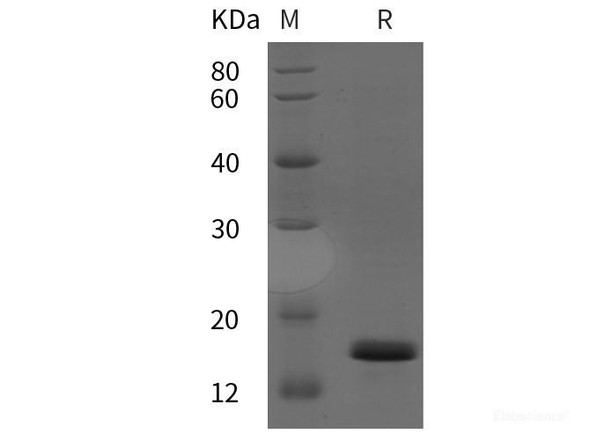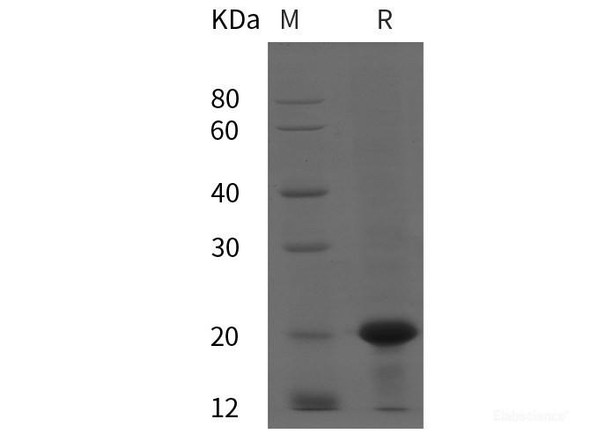Description
| Product Name: | Human IGFBP-7 Recombinant Protein (His tag) |
| Product Code: | RPES6026 |
| Size: | 20µg |
| Species: | Human |
| Expression Host: | HEK293 Cells |
| Synonyms: | Insulin-like growth factor-binding protein 7, IGFBP7, IGF-binding protein 7, IGFBP-rP1, MAC25 protein, Tumor-derived adhesion factor, TAF |
| Mol Mass: | 30.91 kDa |
| AP Mol Mass: | 32 kDa |
| Tag: | C-His |
| Purity: | > 95 % as determined by reducing SDS-PAGE. |
| Endotoxin Level: | Please contact us for more information. |
| Bio Activity: | Testing in progress |
| Sequence: | Met1-Leu282 |
| Accession: | Q16270 |
| Storage: | Generally, lyophilized proteins are stable for up to 12 months when stored at -20 to -80°C. Reconstituted protein solution can be stored at 4-8°C for 2-7 days. Aliquots of reconstituted samples are stable at < -20°C for 3 months. |
| Shipping: | This product is provided as lyophilized powder which is shipped with ice packs. |
| Formulation: | Lyophilized from sterile PBS, pH 7.4. Normally 5 % - 8 % trehalose, mannitol and 0.01% Tween80 are added as protectants before lyophilization. Please refer to the specific buffer information in the printed manual. |
| Reconstitution: | Please refer to the printed manual for detailed information. |
| Background: | Insulin-like growth factor-binding protein 7(IGFBP-7) is a secreted glycosylated protein that contains three protein domain modules. IGFBP7 contains an N-terminal IGFBP domain, followed by a Kazal-type serine proteinase inhibitor domain and a C-terminal immunoglobulin-like C2-type domain. Human and mouse IGFBP7 are highly homologous and share 94% aa sequence identity. It is expressed in many normal tissues and in cancer cells. It is abundantly expressed in high endothelial venules (HEVs) of blood vessels in the secondary lymphoid tissues. It binds IGF and insulin with very low affinity and has been shown to enhance the mitogenic actions of IGF and insulin. IGFBP7 also has IGF/insulin-independent activities. It interacts with heparan sulfate proteoglycans, type IV collagen, and specific chemokines. It supports weak cell adhesion, promotes cell spreading on type IV collagen, and stimulates the production of the potent vasodilator PGI2. It modulates tumor cell growth and has also been implicated in angiogenesis. |






